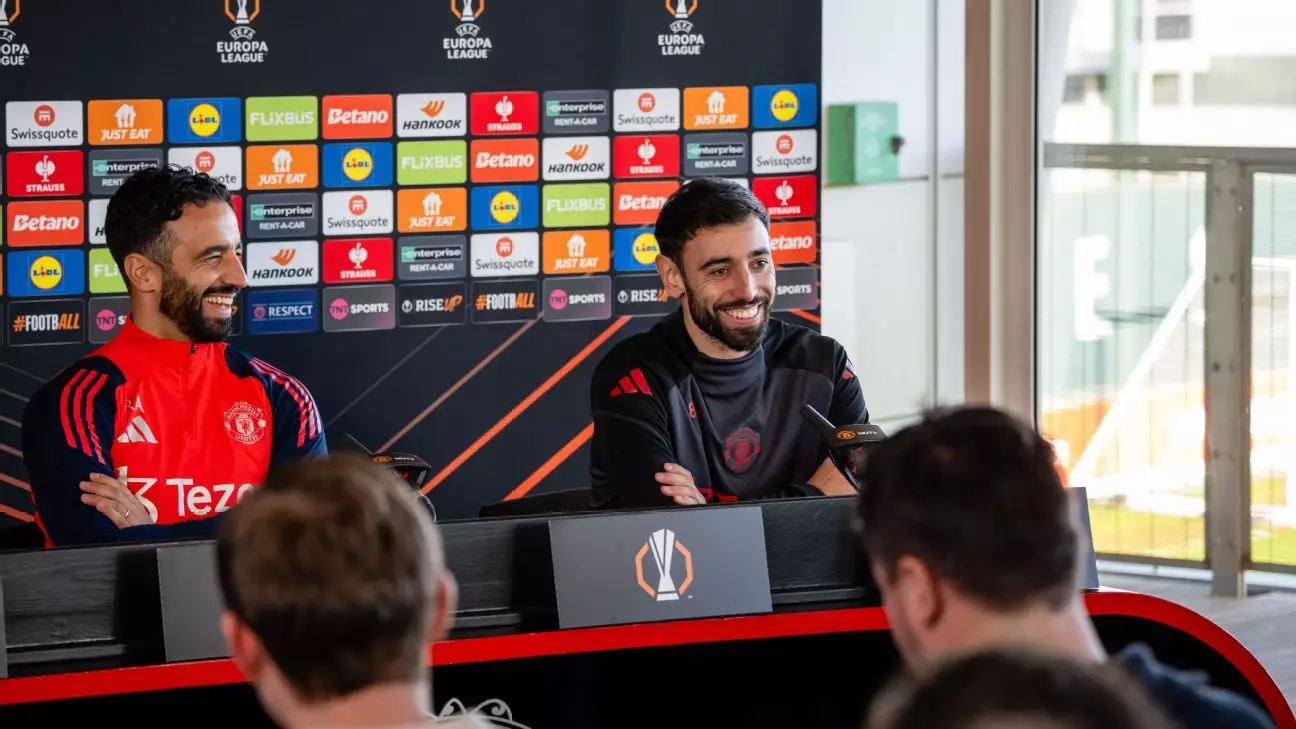In the ever-evolving landscape of football, adaptability is essential, especially for those in leadership positions. Bruno Fernandes, the newly appointed captain of Manchester United, has publicly accepted the daunting task of facilitating his teammates’ transition to the tactical approach of their new head coach, Ruben Amorim. Following a somewhat dispiriting 1-1 draw against Ipswich in Amorim’s debut match at the helm, Fernandes acknowledges that the team is on the cusp of change—one that may come with its share of struggles. His willingness to take on this challenge reflects not only a commitment to his role but also an understanding of the complexities inherent in football.
One of the most pressing tasks Fernandes has undertaken is to bridge the communication gap that can arise during matches. Football, often celebrated for its pace and unpredictability, leaves little room for static messaging from the sidelines. In busy stadiums, the cacophony of noise can render verbal instructions from the coach almost futile. Thus, Fernandes has taken upon himself to provide in-game leadership, acting as an intermediary of sorts. His tactical acumen, honed through diligent training and observation, empowers him to offer real-time guidance and insights to his teammates. “You have to be able to try and solve the situation together with your teammates,” he remarked, emphasizing the collaborative nature of leadership.
The dismissal of former manager Erik ten Hag underscores the harsh realities of football management. Fernandes has expressed regret for the circumstances leading to Ten Hag’s exit, recognizing that changes in management are often symptomatic of broader systemic issues within the squad. In light of this upheaval, he has urged his fellow players to shoulder their share of the blame. “Everyone has to take the blame,” he stated, shifting focus from a singular figure to the collective responsibility that players must accept for the team’s performance. This realization is pivotal, as it lays the groundwork for a united front moving forward.
As Manchester United gears up to face Bodo/Glimt in the Europa League, the camaraderie and resilience within the squad will be put to the test. Under Amorim’s guidance, the team is poised for a reconstruction phase that aims to restore its former glory. Fernandes’ proactive approach and commitment to fostering a positive learning environment will be indispensable in navigating this transition. The upcoming matches will not only gauge the efficacy of Amorim’s tactics but also the depth of character and unity among the players.
Bruno Fernandes stands at the forefront of Manchester United’s quest for reinvention. His dual role as captain and on-field communicator may well be the catalyst for a transformative period, where learning and adaptation become the cornerstones of success. As the team faces new challenges, the responsibility to evolve lies not just with the coach but significantly with the players themselves.
